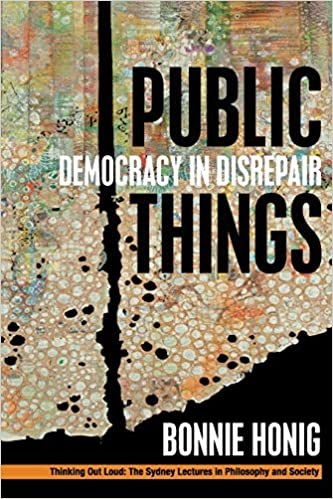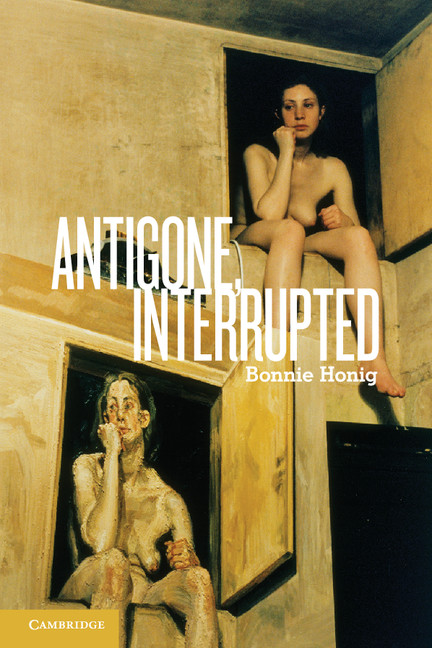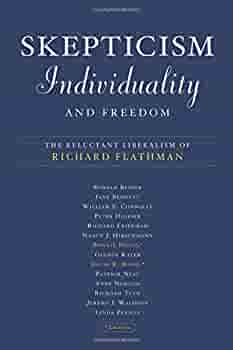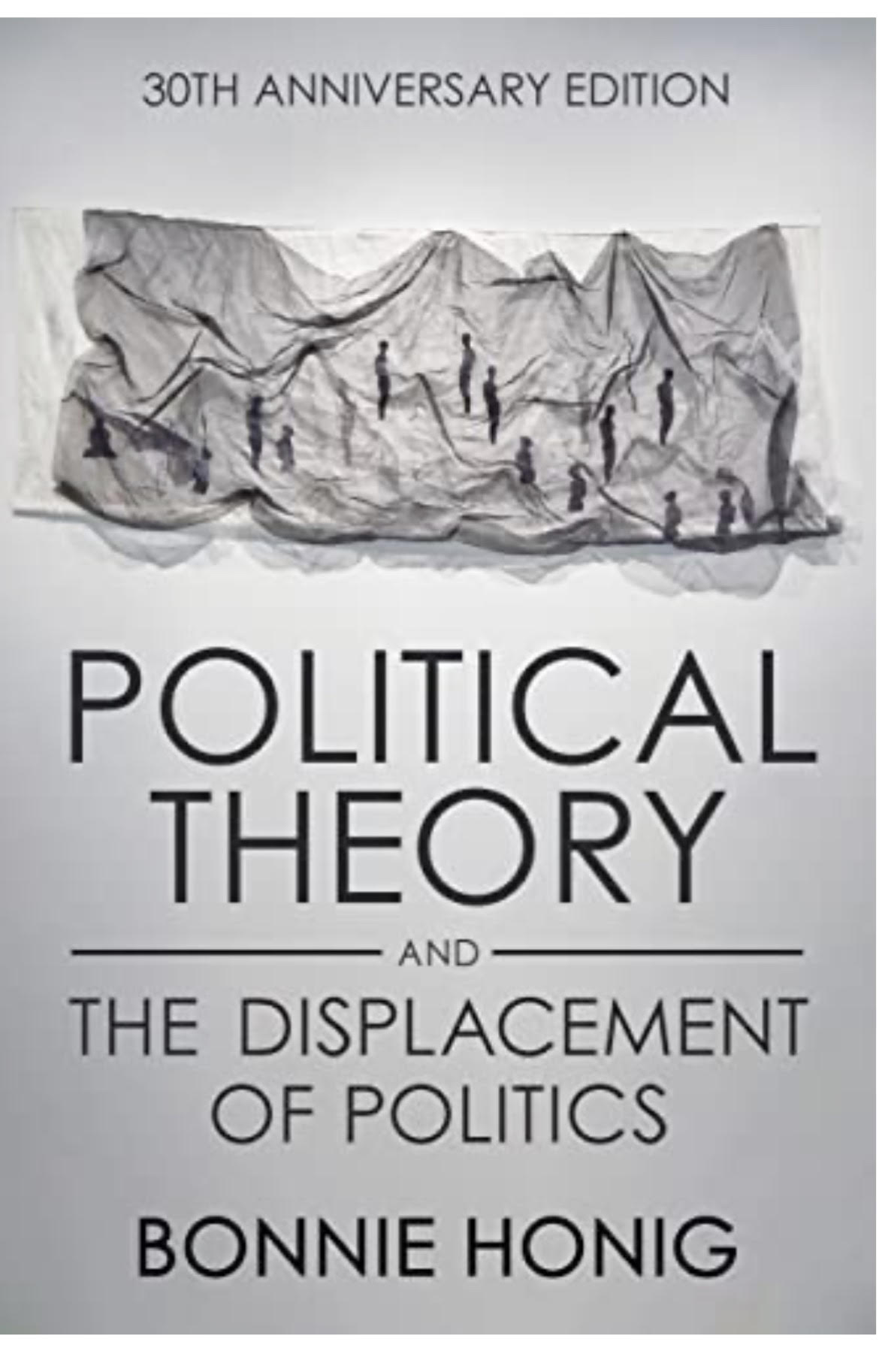
Bonnie Honig
Biography
Bonnie Honig is Nancy Duke Lewis Professor of Modern Culture and Media (MCM) and Political Science at Brown University, and (by courtesy) Religious Studies (RS) and Theater and Performance Studies (TAPS). She is author of several books, including: Political Theory and the Displacement of Politics (Cornell, 1993, Scripps Prize for best first book), Democracy and the Foreigner (Princeton, 2001), Emergency Politics: Paradox, Law, Democracy (Princeton, 2009, David Easton Prize), Antigone, Interrupted (Cambridge University Press, 2013), Public Things: Democracy in Disrepair (Fordham, 2017), A Feminist Theory of Refusal (Harvard, 2021) and Shell Shocked: Feminist Criticism After Trump (Fordham, 2021: a collection of revised versions of her public writing since 2016).
Honig has also edited or co-edited several collections, including Feminist Interpretations of Hannah Arendt (Penn State, 1995), the Oxford Handbook of Political Theory (Oxford, 2008), and Politics, Theory, and Film: Critical Encounters with Lars von Trier (Oxford, 2016). Her articles have appeared in a wide variety of journals, including Arethusa (Okin-Young Prize for best article in feminist theory), New Literary History, Political Theory, theory&event, Social Text, differences, American Political Science Review, Political Theology, and (fc, 2023) Cultural Critique.
Honig has been interviewed by The Nation and Polity in print and by several podcasts, including the Cogut Institute's Meeting Street and Why We Argue.
In 2017-18 she served as the Inaugural Cranor Phi Beta Kappa Scholar, and she is currently an affiliate of the Digital Democracy Group at Simon Fraser University and the American Bar Foundation in Chicago.
Publications
“Shell-Shocked is a must-read for anyone recovering from the disorientation and desensitization of the Trump years. Honig’s feminist lens permits us to see past an overwhelming barrage of words, images, and video outtakes, to reveal how patriarchy remains the foundation of so much of what ails us. Honig brings keen observation and wry humor to dazzling readings of literature, cinema, and cable news, as well as to the everyday moments that have troubled and confounded us. Her insights not only make us smarter; they promise to equip us for the work toward justice that lies ahead.”
Martha S. Jones, author of Vanguard: How Black Women Broke Barriers, Won the Vote, and Insisted on Equality for All
“Give her glory! In her reading of and with the Bacchae, Bonnie Honig takes us through the text into critical theory, theater, and the agonistic political. Her sisterly feminism makes women fiercer, more violent, more political, more closely and willfully bound to one another, full of food and pleasure and joy in rebellion. In the arc of refusal that Honig makes visible, sexualities become iridescent acts of will, maternalism falls before an egalitarian sisterhood, and an ancient text opens to new forms of political struggle.”
Anne Norton, author of 95 Theses on Politics, Culture, and Method
“This brilliant book engages Cavarero’s work to re-imagine an ethics of nonviolence. Challenging the masculine individualism common to canonical thought and contemporary politics, the authors envision new forms of sociality rooted in bodily interdependence. Reading this book is like participating in an electrifying seminar with some of the most incisive feminist thinkers of our time.”
Elisabeth Anker, George Washington University
“An essential corrective to democratic theorists’ current obsession with Carl Schmitt, Emergency Politics confronts the leading challenges of democratic theory—the status of emergency powers, the ground of legitimacy, the scope of rights—and offers a perspective that finds generative potential in the paradox that we the people are always and necessarily both law’s authors and law’s subjects. A moving and hopeful take on issues that have led so many to profound skepticism.”
David Cole, author of Justice at War: The Men and Ideas That Shaped America’s War on Terror
“Although, on the surface, the title “Public Things” is just a routine translation of the Latin res publica, Honig injects into the phrase a radical twist which exposes the “disrepair” of contemporary democratic politics. Although upholding the need for publicly shared concerns, her book also launches an indictment: namely, that increasingly such concerns are reified and objectified and thereby transformed into targets for individual or corporate appropriation.”
Global-E, UC Santa Barbara
“The President’s House is Empty: Losing and Gaining Public Goods explores the question of what we—the public—owe each other as free and equal members of a democratic society. With essays by writers and thinkers like Bonnie Honig, this collection attempts to make sense of the current administration’s disdain for public things like the White House, public education, and clean water.”
“Who’s afraid of controversial arguments? Certainly not the authors of this collection of essays. Without ever looking for the easy way out, they face all the challenges of one of the most provocative contemporary filmmakers. In one word: in front of his films, they think.”
Peter Szendy, author of Apocalypse-Cinema
“Honig’s sweeping consideration of how the ‘Antigone’ is read and misread offers us a new way to approach the pauses, the ellipses, and the frank interruptions that punctuate this classic text. We have all struggled so hard to make the words mean in this or that way that we have perhaps forgotten the more dramatic features of the text in which relationships rupture, words trail off, and events still language. This book offers a trenchant analysis of sovereignty, belonging, and freedom through a perspective at once dramatic, literary, and political. Honig’s sustained engagement with contemporary criticism shows how important the figure and text of Antigone is for any effort to think about the risks and the necessity of contestatory democratic culture.”
Judith Butler – University of California, Berkeley
“This is a unique and impressive set of analyses about scholarship in political theory. It is comprehensive, as we would expect. Beyond that, it is remarkably creative in the way that Dryzek, Honig and Phillips have organized categories, and it includes much overdue reference to scholarship on non-Western and postcolonial thought.”
Iris Marion Young, Late Professor of Political Science at the University of Chicago
“As one of liberal theory’s most important gadflies, Richard Flathman has during the past four decades produced a significant body of work that is iconoclastic, idiosyncratic, and increasingly influential. Flathman criticizes liberal theory’s role in justifying a politics of governance that has drifted substantially from liberalism’s central commitments to individuality and freedom. It is this challenge, and its implications for the future of liberal theory, that brings together the diverse and distinguished authors of this volume. Topics include the relationships between theory and practice, skepticism and knowledge, individuality and egoism, negative and positive freedom, Hobbes and liberalism, as well as the uneasy connections among liberalism, feminism, and democratic politics.”
“Bonnie Honig is a political thinker who doesn’t define problems away but rather zeroes in on what problems reveal. Instead of asking ‘What are we to do about foreigners?’ she asks ‘What unacknowledged work is the idea of the foreigner doing for us? And who is this us?’ In investigating why founders (or re-founders) are so often foreigners, she has written a wonderfully timely and thought-provoking book.”
Barbara E. Johnson, Harvard University, author of The Feminist Difference
“That Hannah Arendt should have become a provocative subject for feminists is startling, so this collection can be enjoyed both for its fine quality and as a historical phenomenon, one that reveals as much about the concerns of contemporary feminism as about Hannah Arendt.”
Elizabeth Young-Bruehl, Author of Hannah Arendt: For Love of the World
“Honig’s sharp genealogical sensibilities and insights, her development of a position of agonistic amendable authority, the questions which she raises and the soothing answers she refuses, come together in an excellent book that engages and provokes its readers in ways which exemplify political theory at its best, animated but not displaced by politics.”
Journal of Politics
Articles
Bonnie Honig. “What is Agonism?.” Contemporary Political Theory, 2019.
Honig, B. “Three Models of Emergency Politics.” boundary 2, vol. 41, no. 2, 2014, pp. 45-70.
Honig, Bonnie. “Antigone, After the Fall”.” Int class trad, vol. 21, no. 3, 2014, pp. 326-335.
Teaching
Awards
Media
Brown University faculty panel: After Charlottesville, Fall 2017
6/21/21: Interview with Daniel Steinmetz-Jenkins at The Nation discussing her two new books Shell Shocked & A Feminist Theory of Refusal bit.ly/35JqBK5
6/23/22: “The Public Sphere in Agony” –Re-Thinking the Dialogical, Performative Assembly, and Civic Culture, Katholische Universität Eichstätt-Ingolstadt /Please start at 47:33
Recent News
Bonnie Honig - 2023 Guggenheim Fellowship in Literary Criticism
“Like Emerson, I believe that fullness in life comes from following our calling,” said Edward Hirsch, President of the Guggenheim Foundation and 1985 Fellow in Poetry. “The new class of Fellows has followed their calling to enhance all of our lives, to provide greater human knowledge and deeper understanding. We’re lucky to look to them to bring us into the future.”
In all, 48 scholarly disciplines and artistic fields, 72 different academic institutions, 24 states and the District of Columbia, and two Canadian provinces are represented in this year’s class of Fellows, who range in age from 31 to 85. Close to 50 Fellows have no current full-time college or university affiliation. Many Fellows’ projects directly respond to issues like the lasting effects of the Covid-19 pandemic, democracy and policing, scientific innovation, climate change, and identity.












